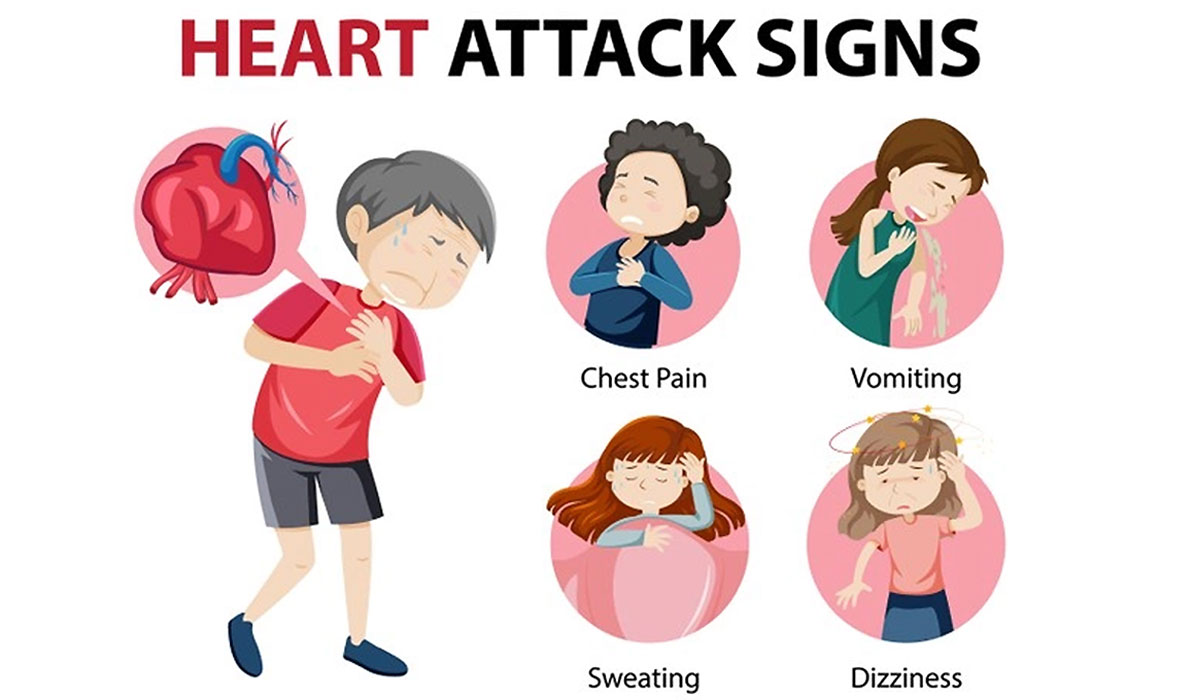The Symptoms of Heart Attack

The symptoms of a heart attack can vary from person to person, and they may differ between men and women. However, common symptoms of a heart attack include:
-
Chest Pain or Discomfort:
- This is the most common symptom of a heart attack. It may feel like pressure, tightness, squeezing, or pain in the center of the chest that lasts more than a few minutes or goes away and comes back.
-
Pain or Discomfort in Other Upper Body Areas:
- Pain or discomfort may also occur in one or both arms, the back, neck, jaw, or stomach. This can manifest as aching, numbness, or tingling sensations.
-
Shortness of Breath:
- Feeling short of breath or having difficulty breathing can occur with or without chest discomfort. It may happen before or during chest pain.
-
Nausea or Vomiting:
- Some people may experience nausea, vomiting, indigestion, or heartburn as symptoms of a heart attack, especially women.
-
Cold Sweating:
- Cold sweats, clammy skin, or a feeling of lightheadedness or dizziness may occur along with other symptoms.
-
Fatigue:
- Unexplained fatigue or weakness, especially when it's sudden or severe, can be a symptom of a heart attack.
-
Anxiety or Panic Attack-Like Symptoms:
- Some people may experience feelings of anxiety, impending doom, or a sense of panic along with other symptoms.
-
Silent Heart Attack:
- In some cases, a heart attack may occur without obvious symptoms, particularly in older adults, people with diabetes, or those who have had previous heart attacks. This is known as a silent heart attack.
It's important to note that not everyone experiences all of these symptoms, and some people may have atypical symptoms or no symptoms at all, especially women, older adults, and people with diabetes. Additionally, symptoms can vary in intensity and may come and go. If you suspect you or someone else is having a heart attack, it's crucial to seek immediate medical attention by calling emergency services or going to the nearest emergency room. Prompt treatment can help prevent further damage to the heart muscle and improve outcomes.
Thank you,
